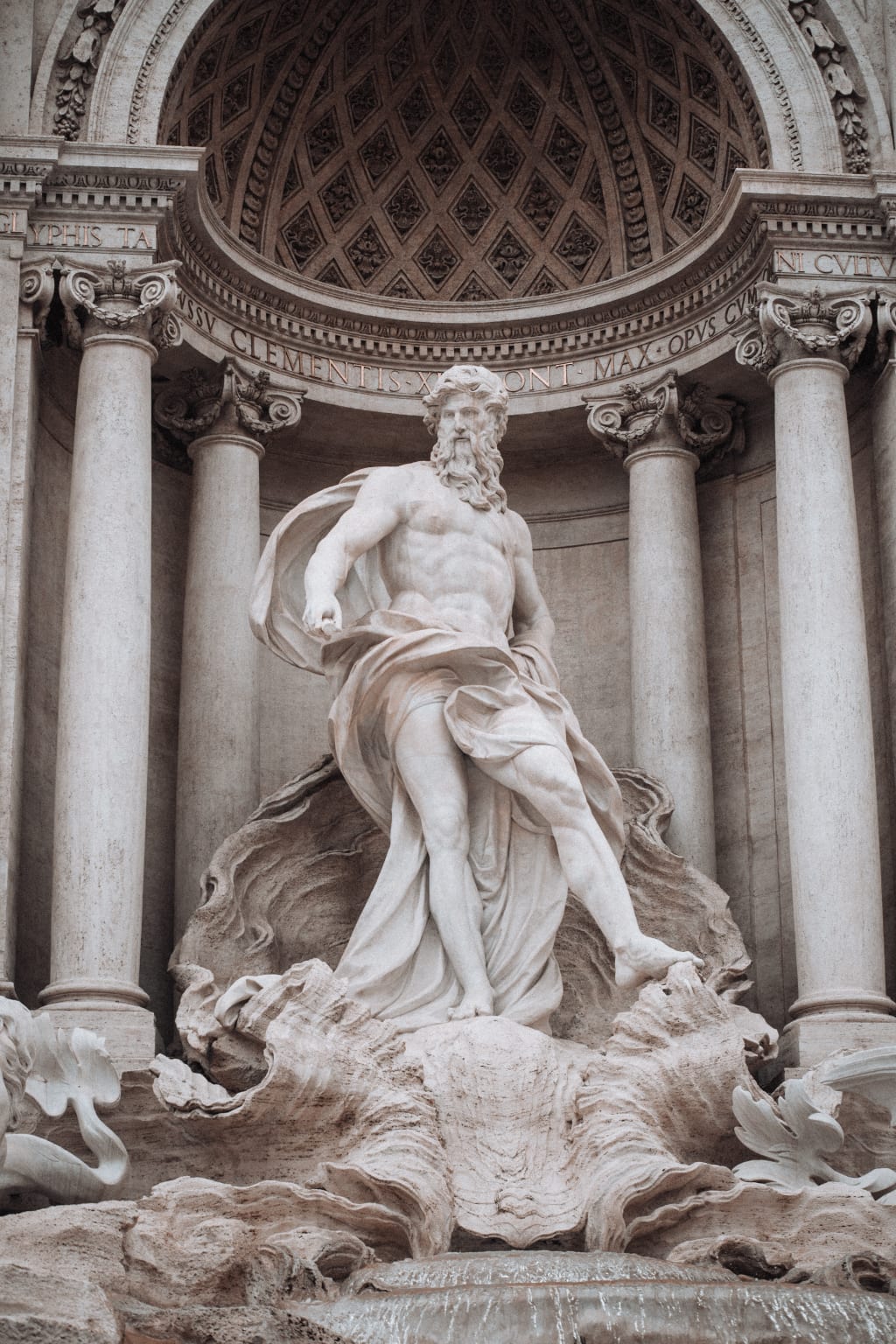
The history of ancient Greece, often referred to as "Hellenic" or "Classical" Greece, spans a period from the Bronze Age to the Hellenistic period, roughly from the 8th century BCE to the 1st century BCE. Greek civilization had a profound influence on the development of Western culture, politics, philosophy, art, and literature. Here is an overview of key periods and events in the history of ancient Greece:
Bronze Age (c. 3000 BCE - c. 1100 BCE):
The Bronze Age witnessed the rise of the Minoan and Mycenaean civilizations. The Minoans, centered on the island of Crete, were known for their advanced culture and maritime trade. The Mycenaeans, based on the Greek mainland, were skilled warriors and established extensive trade networks.
Dark Age (c. 1100 BCE - c. 800 BCE):
The Dark Age followed the collapse of the Mycenaean civilization. It was a period of economic decline and limited cultural activity. Greek society was primarily rural and organized into small, independent communities.
Archaic Period (c. 800 BCE - c. 480 BCE):
The Archaic Period marked the revival of Greek civilization. City-states, known as poleis, emerged as the dominant political units. Athens, Sparta, Corinth, and Thebes were among the most influential city-states. The Greeks established colonies across the Mediterranean, expanding their cultural and economic influence.
Persian Wars (499 BCE - 449 BCE):
The Persian Wars were a series of conflicts between the Greek city-states and the Persian Empire. The Greeks, led by Athens and Sparta, successfully repelled two Persian invasions. These wars symbolized the defense of Greek freedom and independence and laid the foundation for the Athenian-led Delian League.
Golden Age of Athens (5th century BCE):
The 5th century BCE is often referred to as the Golden Age of Athens. Under the leadership of statesman Pericles, Athens experienced a period of remarkable cultural and intellectual achievements. This era saw the construction of iconic buildings such as the Parthenon and significant contributions in philosophy, drama (by playwrights like Aeschylus, Sophocles, and Euripides), and history (by writers like Herodotus and Thucydides).
Peloponnesian War (431 BCE - 404 BCE):
The Peloponnesian War was a protracted conflict between Athens and Sparta, along with their respective allies. The war weakened the Greek city-states and ultimately led to the decline of Athens. Sparta emerged as the dominant power in Greece.
Macedonian Conquest (336 BCE - 323 BCE):
Philip II of Macedon, and later his son Alexander the Great, conquered the Greek city-states and established the Macedonian Empire. Alexander's conquests extended Greek influence as far as Egypt, Persia, and India, spreading Hellenistic culture throughout these regions.
Hellenistic Period (323 BCE - 31 BCE):
Following Alexander's death, his empire fragmented into separate Hellenistic kingdoms, including the Ptolemaic Kingdom in Egypt, the Seleucid Empire in Asia, and the Antigonid Kingdom in Macedonia. During this period, Greek culture blended with local customs, leading to the spread of Hellenistic art, philosophy, and science.
The history of ancient Greece is characterized by remarkable cultural, political, and intellectual achievements. The legacies of Greek civilization continue to shape modern society in numerous ways, particularly in fields such as philosophy, politics, architecture, and literature. add more information
Decline
The decline and fall of ancient Greece can be attributed to several factors:
Internal Conflict and Disunity:
The Greek city-states were often engaged in internal conflicts and power struggles, which weakened their unity and made them vulnerable to external threats. Rivalries between city-states, such as Athens and Sparta, led to the Peloponnesian War (431 BCE - 404 BCE), resulting in significant losses and destabilization.
Macedonian Conquest:
The conquest of Greece by Philip II of Macedon and later his son Alexander the Great had a profound impact on Greek civilization. Although the Macedonian Empire spread Greek culture and ideas to a vast extent, it also subjugated the Greek city-states politically. The rise of Macedon and the subsequent Hellenistic period marked a shift in power away from the independent Greek city-states.
External Invasions:
Greece faced several invasions from outside forces, including the Persian Empire. While the Greeks successfully repelled the Persian invasions during the Persian Wars (499 BCE - 449 BCE), these conflicts strained their resources and caused significant destruction. In later years, Greece faced invasions from the Gauls, Macedonians, and eventually the Romans, further eroding their independence.
Economic Decline:
The economy of ancient Greece relied heavily on agriculture, trade, and colonization. As Greek city-states faced internal conflicts and external invasions, their economic stability suffered. The destruction caused by wars disrupted trade routes and agricultural production, leading to economic decline and a decrease in wealth and prosperity.
Rise of Rome:
The expansion of the Roman Republic and later the Roman Empire inevitably overshadowed the influence and power of ancient Greece. In 146 BCE, the Roman general Lucius Mummius sacked and destroyed Corinth, marking the end of Greek independence. Greece became part of the Roman Empire, and Greek culture and philosophy were assimilated into Roman society.
Social and Cultural Changes:
The social and cultural changes that occurred during the Hellenistic period, influenced by the blend of Greek and local customs, brought about shifts in values, traditions, and social structures. Traditional Greek ideals and values began to evolve and were gradually replaced by new cultural practices, leading to a transformation in Greek identity.
It's important to note that while ancient Greece experienced a decline politically and militarily, its cultural and intellectual contributions continued to have a lasting impact on Western civilization. The legacy of ancient Greece is still revered today, despite the eventual loss of political independence and the absorption into larger empires.
About the Creator
Asif Ali
i like to create fictions;articles, and poetry.With a vivid imagination and a penchant for creating relatable characters, I shall capture the hearts of readers around the world.
Enjoyed the story? Support the Creator.
Subscribe for free to receive all their stories in your feed. You could also pledge your support or give them a one-off tip, letting them know you appreciate their work.






Comments (1)
V.nice